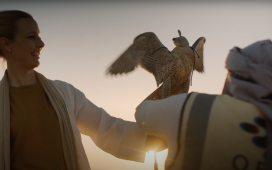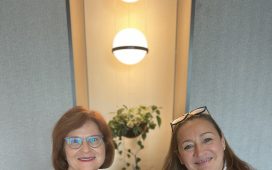Joe Lipscombe, regional director of content strategy, PR & influence, Memac Ogilvy MENA.

Every article you’re about to read in the coming quarter is going to tell you the same thing: it’s been an unprecedented time. That has caused disruption. With disruption comes opportunity. And those that can step up and take that opportunity will win *pause for applause*.
Then, instead of telling you how, they’ll list words, like the following: data (lots of data), technology, personalization, and data again.
Is it wrong? Not necessarily. That’s the beauty of broad strokes. They’re like tarot cards for business; enough people fail to disagree. But is it useful? Not in the slightest.
This is the type of non-committal, lowest-common-denominator advice we’ve come to expect from our market (with a few exceptions) and it’s a problem.
It’s a problem because it offers little-to-no real insight or guidance for anyone coming into the industry or trying to make a difference. It overcomplicates what we are really here to do, which broadens the gap between ourselves, clients, other marketing departments, and our audiences. And it sets a meagre standard of what communications in this region should look and sound like — void of depth, void of originality, void of imagination. And the more people like it, share it, use it, and re-use, the worse it becomes.
It’s the same stuff you hear at every conference, on every webinar, webisode, podcast, and whatever other panel-driven drivel we like to produce here. The trouble is, a huge percentage of those tuning into those events and programmes are our students, graduates, and future stars.
They deserve better.
Where does this issue stem from? It’s complicated. Firstly, we have a common speaker list in the PR industry, many of whom are business-folk first. Three-word-slides and big trending phrases are all the rage in business. Secondly, we suffer from a lack of confidence when it comes to being different. In an emerging market, with such varied cultures and styles, so many new faces, so many youthful clients, really sticking your neck out just feels dangerous.
But in the midst of trying to avoid that, we’ve cast aside our greatest and most influential forces — creativity, imagination, and ingenuity. And we’ve forgotten about independent thought.
Instead, we have settled for an agreeable, middle-of-the-road, trend-chasing culture that congratulates itself on repeating insufficient taglines in place of real ideas.
And to our detriment. With the exponential growth (note my use of the term ‘exponential’ to make this sound more legitimate) of data, we need creativity and human ingenuity more than ever before. We need independent thought, wild imagination, and the desire to create new things more than ever before. Our access to information is so great and our landscape so clogged, that without nurturing those that can dive in and come out with something magnificent, we’re all going to continue drowning in the swamp. Plugging VR and AI as we sink into oblivion.
We will continue to stress data, analytics, platforms, metrics, and automation to our rising stars because it sounds innovative and forward-thinking, but in reality, we will continue to shun the very skill that is truly human and evergreen.
The big idea always has and always will win out — no matter how much automation, AI, or analytics we invest in. We must nurture that talent like a newborn.
Failing to do so will set us off down a path to more useless apps, graphs, Venn diagrams, and inspiring Keynote slides than any of us will know what to do with. Junk, junk, and more junk.
This is where the humble maverick earns their stripes. Where brave and unadulterated thinking can alter the future of a business, industry, or region. Challengers of the status quo. The archenemy of conventional wisdom.
We don’t need more people telling us to be efficient with time, clever with data, or to utilize trends, we need a demonstration, inspiration, and invention. Stop telling, start showing.
That’s the maverick. The voices that are bold and brilliant enough, quick enough, and daring enough to go for real change in a stagnant industry overloaded with tameness. The Bruno Fernandes in a team of five-yard-passers.
The problem is, they’re trouble. They make us nervous. They’re unpredictable. They’re not going to hit the mark every time. They’re risky. We are risk-averse in public relations.
But if 2020 has taught us anything, it’s that we need to loosen the shackles and set ourselves free from the fear of backlash. We need to be bolder, braver, and more ambitious as an industry. The mavericks will allow you to do that if we allow them to flourish. To do that, imagination and ingenuity must be at the very core of our approach. Big ideas must come before platforms, channels, and formats. Big ideas must be the result of great strategic thinking.
The concept must come before the vehicle.
No longer can we start meetings with, “Not sure what the idea is, but let’s use influencers,” or “How about we do something with video?” or “Let’s use VR.” And certainly no more inspiring posts or slides spouting hollow marketing phrases like “Disruption = Success” or “The world is changing, we must adapt.”
No, if 2021 is to be a successful year, we must celebrate individuality and originality. We must insist on finding new ways to measure the brilliance of thought as opposed to just numbers and metrics.
The more we obsess over numbers and platforms and channels, and the more we fail to acknowledge and promote independent thought, the more we remind our creative thinkers and stellar imaginations that we’ve forgotten they exist. And that’s no good.









